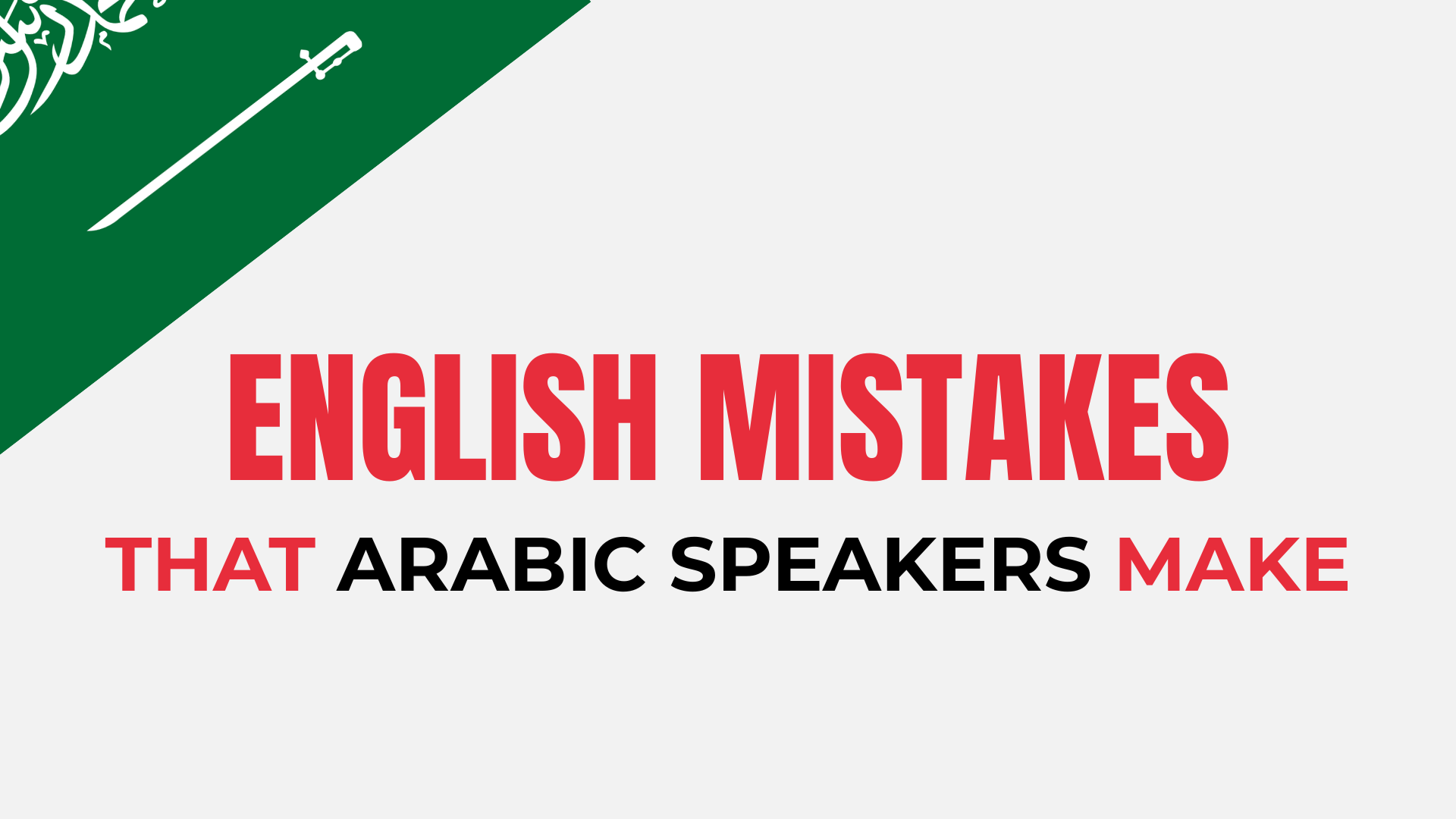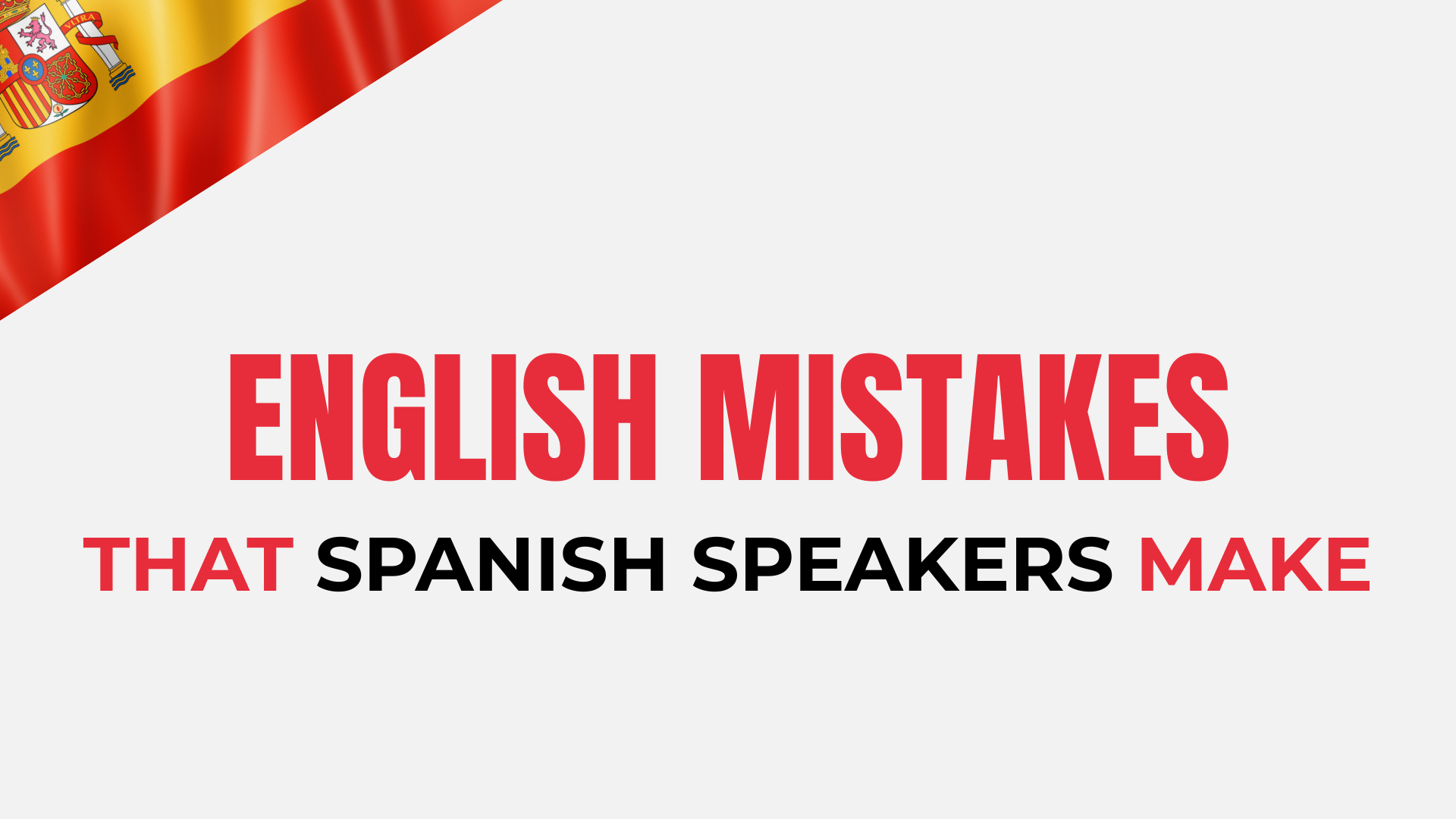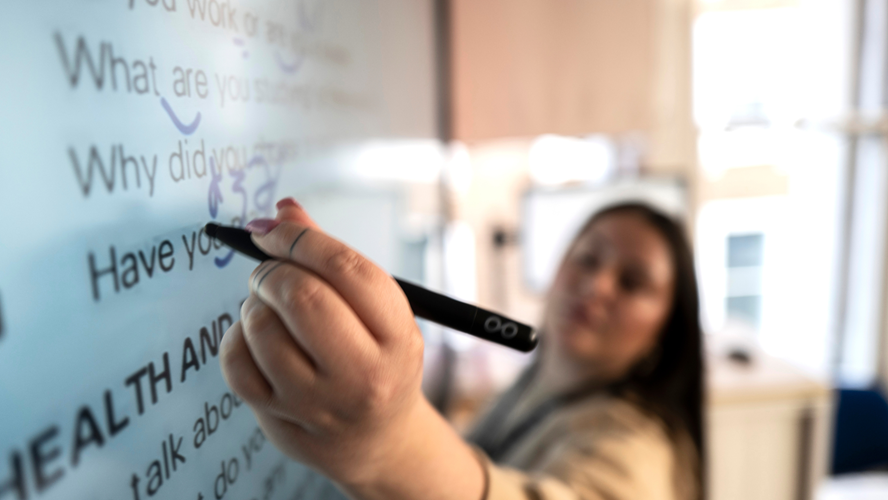Arabic learning English
Culture
Communication skills
Arabic speakers
Courses
english learner
Education
Common English mistakes that Arabic speakers make

English spelling and pronunciation is not the same
In Arabic, the way you write a word is the way you say it. English is not like this. For example: ● Though – /ðə / – sounds like ‘thow’● Through – /θruː/ – sounds like ‘throo’ They look similar, but they sound different! Did you know there are 9 different ways to say ‘-ough’ in English? Also, in English, sometimes you do not pronounce some letters. For example, the ‘k’ in these
words is silent: ● Knife
● Knit
● Know
● Knight
In Arabic, you say every letter, but in English, you need to learn which letters are silent.
Using ‘A’ or ‘An’
The English language differentiates between the definite and indefinite articles. We use ‘the’ (definite article) when we talk about something specific. We use ‘a’ or ‘an’ (indefinite articles) when we talk about something in general.When you introduce yourself and your job, you use ‘a’ or ‘an’ in English:
● I’m a teacher.
● I’m a doctor.
● I’m an engineer. In Arabic, there are no indefinite articles like ‘a’ or ‘an’. So Arabic speakers might say:
● (I teacher) انا معلم
● (I doctor) انا طبيب
● (I engineer) انا مهندس Remember, in English, it sounds more natural to use ‘a’ or ‘an’!
Adjective word order + agreement
Sentence order is key. It’s important to know where you put your nouns, verbs and adjectives. In Arabic, you put the adjective after the noun. In English, it is the opposite: the adjective comesbefore the noun.
● English: I have a red pen.
● Arabic: (عندي قلم احمر) I have pen red Also, in English, adjectives do not change if the noun is plural or feminine. They stay the same,
but in Arabic, adjectives change depending on the noun.
Capital letters
There are no capital letters in the Arabic language, but we do use them in English. There are three instances in which words are spelled with a capital letter in English:● At the start of a sentence.
● For names of people and companies (like Speak Up London).
● For names of cities, countries, and nationalities (for people and things): I’m Italian. I’m a German speaker. I own a Japanese car. I love London.
Pronunciation for letters that don’t exist in Arabic
Arabic speakers might struggle with certain letters found in the English alphabet that they don’thave, such as ‘p’ and ‘v’. This means that often Arabic speakers replace the letters that they don’t have natively with the
letters closest in pronunciation, such as ‘b’ for ‘p’ and ‘f’ for ‘v’. This can create pronunciation problems such as:
● ‘Baber’ instead of ‘paper’
● ‘Ben’ instead of ‘pen’
● ‘Fan’ instead of ‘van’ ● ‘Fery’ instead of ‘very’ Layla, one of our teachers at Speak Up London, shows how you make the different sounds for
‘f’, ‘v’, ‘b’ and ‘p’.
https://youtube.com/shorts/8jNnUBSIMTU?feature=share
https://youtu.be/PqsMzuidEbw


